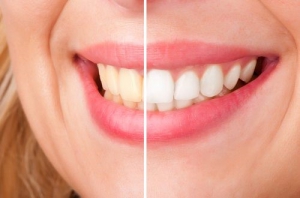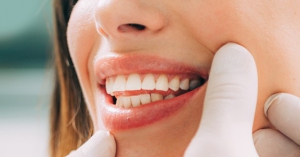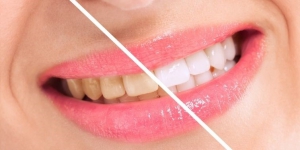Teeth Whitening: Things to Know About Getting a Brighter Smile
The desire for a brighter smile is universal. After all, who wouldn’t want the confidence to show off their pearly whites in any situation? But remember that tooth whitening isn’t always easy or affordable, and there are a few things you need to know before jumping into the whitening fray. In this blog post, we’ll look at the why behind teeth turning color, discuss the different types of teeth whitening products on the market, and answer some of the most common questions. So whether you’re ready to face the dentist with a smile whiter than ever or want to know more about teeth whitening and what it can do for you, read on!
Why Did My Teeth Change Color?
There’s no denying that a brighter smile is attractive and refreshing, which is probably why teeth whitening is so popular. However, before whitening your teeth at home, it’s essential to be aware of the various factors that can cause teeth discoloration. This includes tobacco use, genetics, and age – everyone’s experience with teeth whitening will be different due to these factors. Additionally, there are several ways to get your teeth back to their natural color – by bleaching with light or laser treatment, using home whitening products, or having dental work tips done. Finally, consult a professional before starting any whitening program to optimize results.
How Does Teeth Whitening Work?
 Whitening your teeth has become increasingly popular in recent years, not only because it makes you look more attractive but also because it can improve your oral health. Teeth whitening gel and toothpaste work by removing the top layer of your teeth. The bleaching process may cause sensitivity to light, so it is best to do this procedure under general anesthesia or during a sleepover. Whitening results are usually seen in 2-6 weeks but can take longer depending on the person’s skin tone and other dental factors. There are many different brands of teeth whitening products available on the market, so be sure to read product ingredients before purchasing!
Whitening your teeth has become increasingly popular in recent years, not only because it makes you look more attractive but also because it can improve your oral health. Teeth whitening gel and toothpaste work by removing the top layer of your teeth. The bleaching process may cause sensitivity to light, so it is best to do this procedure under general anesthesia or during a sleepover. Whitening results are usually seen in 2-6 weeks but can take longer depending on the person’s skin tone and other dental factors. There are many different brands of teeth whitening products available on the market, so be sure to read product ingredients before purchasing!
Does Whitening Work on All Teeth?
It’s no secret that many people want a brighter smile. But teeth whitening, in general, isn’t the perfect solution for everyone. Different teeth shades require other whitening treatments, and speaking with your dentist about the best course of action is essential. In addition, some of the most popular teeth-whitening products contain hydrogen peroxide, a potentially harmful agent. If you want to whiten your teeth most safely and effectively, speak with your dentist about the most appropriate whitening treatment for you and your smile. In the meantime, keep your teeth in good condition by brushing and flossing regularly, and avoid eating or drinking anything that will stain your teeth. With a little bit of effort, a brighter smile is within reach!
What Are My Whitening Options?
 Whitening your teeth is a popular choice, and for a good reason. A brighter smile can help you feel more confident and improve your social life. But before you start whitening your teeth, be sure to do your research. Different whitening products contain various chemicals, which can be harmful if not used correctly. Also, select the right whitening option for your teeth and lifestyle. There are bleaching creams, gels, and home kits available, as well as laser-based teeth whitening. Which one is the best for you? It all depends on your needs and preferences. Laser-based whitening may be the right choice if you’re looking for faster results!
Whitening your teeth is a popular choice, and for a good reason. A brighter smile can help you feel more confident and improve your social life. But before you start whitening your teeth, be sure to do your research. Different whitening products contain various chemicals, which can be harmful if not used correctly. Also, select the right whitening option for your teeth and lifestyle. There are bleaching creams, gels, and home kits available, as well as laser-based teeth whitening. Which one is the best for you? It all depends on your needs and preferences. Laser-based whitening may be the right choice if you’re looking for faster results!
Are There Any Side Effects from Teeth Whitening?
 A brighter smile is always a desired goal, and teeth whitening can be a great way to achieve it. However, it’s essential to know the risks and benefits of the treatment before jumping in. Make sure to follow your dental hygiene guidelines, and speak with your dentist before starting any teeth whitening treatments. Most people experience a brighter smile after undergoing the treatment, but it may not be permanent. Teeth whitening has some side effects, but they’re usually mild and temporary. Always be aware of the dentist’s instructions, and take pictures of your teeth before and after treatment to document the progress!
A brighter smile is always a desired goal, and teeth whitening can be a great way to achieve it. However, it’s essential to know the risks and benefits of the treatment before jumping in. Make sure to follow your dental hygiene guidelines, and speak with your dentist before starting any teeth whitening treatments. Most people experience a brighter smile after undergoing the treatment, but it may not be permanent. Teeth whitening has some side effects, but they’re usually mild and temporary. Always be aware of the dentist’s instructions, and take pictures of your teeth before and after treatment to document the progress!
Frequently Asked Questions
How can I make my smile bright white?
Here are some popular whitening techniques that can help you achieve a brighter smile: – Using bleaching gels: Some whitening gels use bleach as one of the main ingredients, which helps to remove stains and discolorations on teeth. – Toothpaste with whiteners: toothpaste contains ingredients like peroxide, triclosan, or carbamide peroxide that work together to brighten your smile. – Light devices like laser whitening or LED dental lights emit light beams that penetrate the tooth enamel and break down stains. – Always read the ingredients list before using any whitening products, as some may contain harmful chemicals that can damage your teeth. – Make sure to take care of your oral hygiene by brushing and flossing regularly and visiting a dentist for regular checkups.
How long does it take to get a whiter smile?
It can take anywhere from one day to seven days for teeth whitening treatments to take effect. However, the more influential the treatment, the sooner you will see results. For tooth whitening gel, strips, or laser treatments, hydrogen peroxide is the key ingredient that helps break down unwanted proteins and stains on your teeth. Unfortunately, this component also bleaches teeth, making them a whiter appearance. While there is no set time frame for teeth whitening, it is essential to remember that the brighter the smile, the happier you will be! So keep at it and watch your smile become more brilliant over time!
Does teeth whitening make you look more attractive?
Many people believe teeth whitening can improve a person’s overall appearance. This is because teeth whitening products remove the stains and discolorations that build up on teeth over time, including in areas that are difficult to see, like at the back or the sides of teeth. There are a few different ways to get teeth whitened. The most common way is through the use of lasers. Other methods involved in teeth whitening include bleaching products with a hydrogen peroxide solution or peroxide paste. Whitening treatments usually take one to two hours but can last several days. Depending on the individual’s skin tone, tooth color, and degree of tooth sensitivity, results from teeth whitening may vary.
How do I increase the results of my teeth whitening?
There are a few things that you can do to increase the results of teeth whitening. One of the most common ways is using activated charcoal and baking soda toothpaste. This toothpaste helps remove stains and excess oil from your teeth, leading to whiter teeth. Secondly, brush your teeth thoroughly twice a day and drink plenty of water to ensure good oral hygiene practices for whiter teeth. Drinking plenty of water helps keep your gums healthy, and regular flossing will remove any leftover food particles that may cause tooth decay. Thirdly, one of the best ways to increase teeth whitening results is using custom-designed toothpaste. Some toothpaste specifically designed for teeth whitening contains ingredients like hydrogen peroxide gel or strips. These ingredients bleach your teeth at the cellular level, causing them to become whiter in color over time.
What is the best way to avoid tooth-bleaching mistakes?
There are a few different ways to whiten teeth, and each has its benefits and risks. To choose the best way for you, it’s essential to consult with your dentist. One of the most popular ways is called photoactivation dentistry or PAD. In this procedure, photosensitive dyes are applied directly onto the tooth surface. On the other hand, light-activated dentistry, or LAD, is the most common way to whiten teeth. In this procedure, lasers are used to break down tooth color.
Additionally, teeth whitening can be done in a few different ways, such as laser-assisted dental whitening (LAD), which uses lasers in combination with other methods like bleaching gels or hydrogen peroxide to achieve better results. Ultimately, the best way to whiten teeth depends on various factors, such as your tooth sensitivity, budget, and the desired level of whiteness. So, consult your dentist to find the best teeth whitening method for you!
Conclusion
There are many reasons why you may want to whiten your teeth, be it for cosmetic reasons or to improve your oral health. However, before whitening your teeth, it is vital to know a little about the different whitening options and ways whitening can work. To find the right whitening solution for you, consult with a dentist or dental professional who can help you select the best whitening product for your teeth and mouth. In the meantime, read through the blog for more information on tooth whitening and keep up-to-date with the latest news and trends in the industry.


